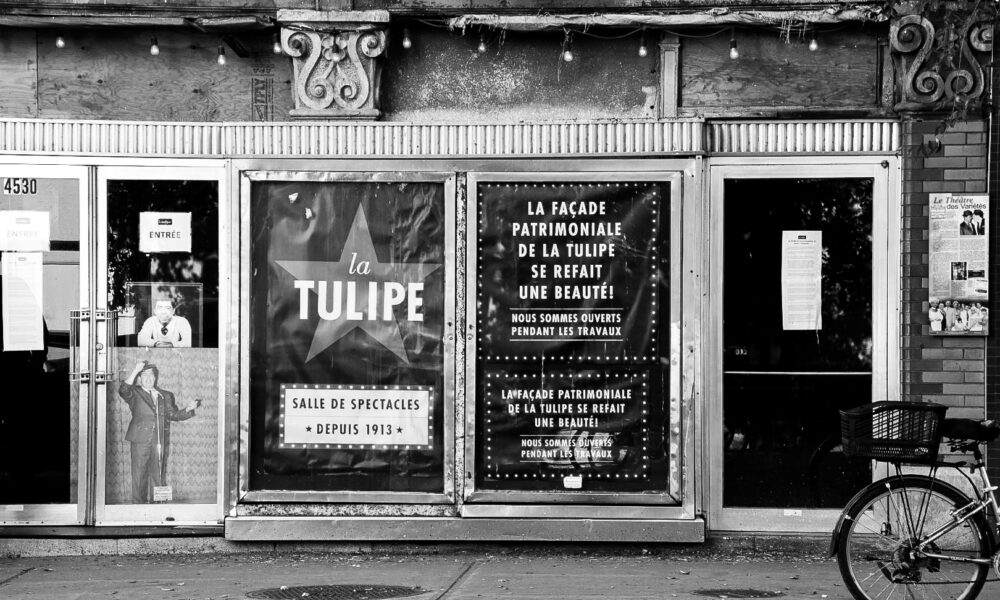On Sept. 23, the Court of Appeal of Quebec ordered La Tulipe, a century-old concert hall in the heart of Montreal’s Plateau-Mont-Royal borough, to halt all shows due to a long-standing series of noise complaints from surrounding residents. While the Court’s original ruling from May 2023 stated that the theatre had to comply with Section 8 of the borough’s noise regulation code by soundproofing the interior of the building, the September 2024 ruling now invokes Section 9—a far stricter rule requiring that no noise from sound equipment such as loudspeakers be heard from nearby properties, regardless of intensity—forcing La Tulipe to close its doors.
“This situation of constraint that we have been experiencing for eight years now has cost us enormous losses in operating revenues for the venue, legal fees, and all kinds of damages,” reads a statement from La Tribu, the Quebec-based company that owns La Tulipe.
The complaints lodged against La Tulipe stem from the owner of an apartment building located adjacent to the venue. Although the section of Avenue Papineau where both buildings are located is zoned for commercial use, the city has permitted owner Pierre-Yves Beaudoin to use the space as a residential building housing 16 people since 2016. If property owners like Beaudoin can bend zoning rules, they shouldn’t expect the environment to reflect that of a residential zone—and more generally, the city shouldn’t concede to landlords’ every whim. This ruling sets a dangerous precedent, particularly in a city like Montreal whose character, heritage, and culture are so deeply tied to its art.
At the heart of this issue is balancing the need for historical preservation and addressing Montreal’s current rental crisis. In the past four years, rental prices in the city have surged by 27 per cent while eviction rates simultaneously reached an all-time high in 2023. Combined with the city’s mere 1.5 per cent vacancy rate, it’s never been harder to find and keep an apartment in Montreal. It’s understandable then that a borough would build where there is availability, regardless of the surrounding landscape. But adequate housing is so much more than just building units haphazardly throughout the borough—it requires proper consideration for the urban environment.
Respect for and preservation of historic properties, like La Tulipe, benefits not only the businesses they house but also members of the community. When housing takes absolute precedence over everything else within a neighbourhood, it degrades the quality of life for residents new and old. There may be more apartments, but without ways of engaging with the city’s culture, it begs the question of why one would choose to live there in the first place. People are so much more than just residents of a building or borough; they are community members, and they deserve a neighbourhood that they want to live in.
In addition to being historic locations, these properties are businesses that employ many members of Montreal’s arts community. Thus, when venues such as La Tulipe are forced to shut their doors, the economic fallout extends beyond the surrounding physical area to the larger arts community across the city.
“It is also the entire ecosystem that suffers: Artists, musicians, technicians, event promoters, [La Tulipe]’s employees,” reads the same statement from La Tribu.
The longer-term implications of failing to properly regulate the construction of residential properties in the city will be the degradation of cultural monuments in each neighbourhood. Popular tourist destinations like the Musée des beaux-arts will (hopefully) always be there, but smaller venues, restaurants, and galleries like La Tulipe are at real risk of extinction. It is those institutions, used on a regular basis by those who live in the city, that make Montreal the hub of creativity that it is. In the absence of spaces to practice and proliferate art in the community, we lose a core sense of identity that is profoundly important to the Plateau-Mont-Royal borough in particular, as a historic epicentre for musicians in Montreal.







